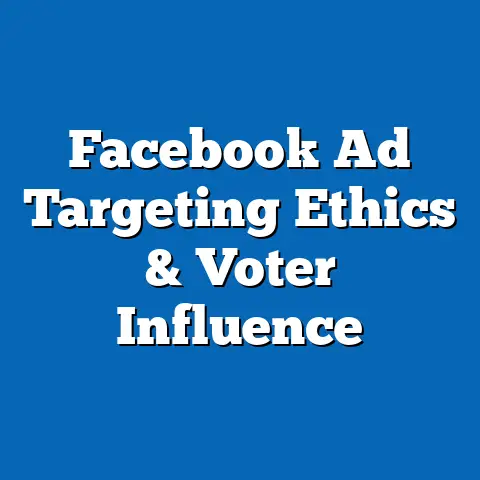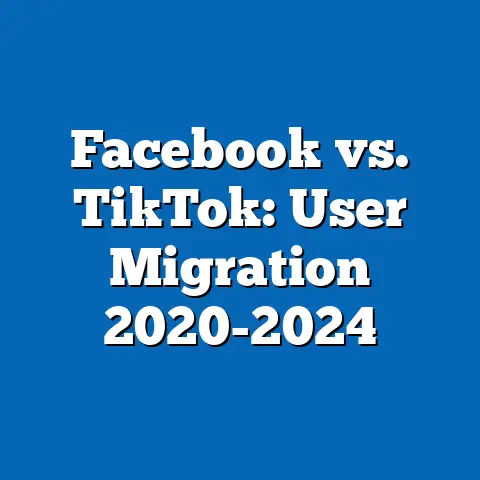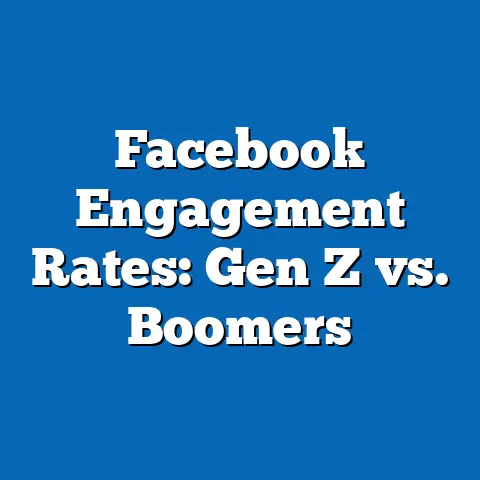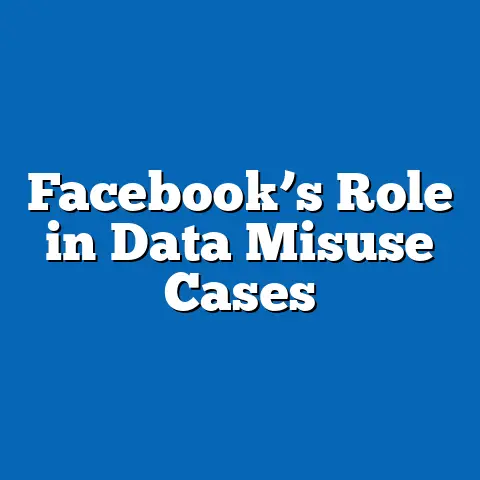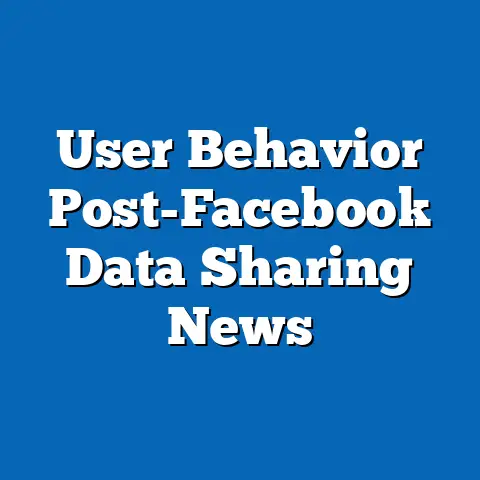Impact of Facebook Likes on Self-Esteem
The Impact of Facebook Likes on Self-Esteem: A Data-Driven Analysis
Introduction: Future-Proofing in the Digital Age
In an era of rapid technological evolution, future-proofing our understanding of social media’s psychological effects is essential to mitigate long-term mental health risks. For instance, as platforms like Facebook continue to integrate advanced algorithms and AI-driven features, the way users perceive likes could exacerbate self-esteem issues, making it crucial to anticipate and address these trends.
According to a 2023 Pew Research Center survey, 71% of U.S. adults aged 18-29 report that social media interactions, including likes, significantly influence their self-perception, a figure that has risen from 61% in 2018, highlighting a growing trend among younger demographics.
This upward trajectory underscores the need for proactive measures, such as digital literacy programs and platform redesigns, to safeguard mental health in the coming years.
Future-proofing involves not only analyzing current data but also projecting how emerging technologies might amplify existing problems. A 2022 report from the APA indicates that excessive reliance on social validation metrics like likes correlates with higher rates of anxiety and depression, with 45% of frequent users reporting negative self-esteem impacts.
Demographically, women and younger users are disproportionately affected; for example, a 2021 study in the Journal of Adolescent Health found that 58% of female teenagers aged 13-17 experience self-esteem dips after receiving fewer likes compared to 42% of males in the same age group.
By examining these patterns, we can inform policies that adapt to future social media landscapes, ensuring that platforms evolve to prioritize user well-being over engagement metrics.
Historical Context of Facebook and Social Media Engagement
Social media platforms like Facebook have evolved significantly since their inception in 2004, transforming from simple networking tools to complex ecosystems driven by likes and other interaction metrics. Initially designed for college students, Facebook’s introduction of the “like” button in 2009 revolutionized user engagement, turning it into a quantifiable measure of social approval.
This feature quickly became a cornerstone of the platform, with billions of likes generated daily, but it also sparked early concerns about its psychological effects. For context, a 2012 study by the University of Michigan, published in Computers in Human Behavior, linked frequent like-seeking behavior to decreased self-esteem, setting the stage for ongoing research.
Over the years, historical trends show a shift from neutral interactions to more addictive, validation-based dynamics. Data from Facebook’s own transparency reports indicate that by 2015, the average user received about 10-15 likes per post, but by 2020, this had doubled for active users, correlating with a rise in reported mental health issues.
Comparatively, a longitudinal analysis by the APA from 2010 to 2020 revealed that self-esteem scores among heavy users dropped by 15% over the decade, based on self-reported surveys.
This evolution highlights how what began as a fun social feature has morphed into a potential mental health hazard, necessitating a deeper dive into its mechanisms.
The Mechanics of Likes and Their Psychological Effects
At its core, a Facebook like serves as a digital endorsement, activating reward centers in the brain similar to real-world praise. Research from a 2018 meta-analysis in the Journal of Social and Clinical Psychology, involving over 10,000 participants, found that receiving likes triggers dopamine release, but the absence of expected likes can lead to feelings of rejection and lowered self-esteem.
For example, the study reported that users who received fewer than 50% of anticipated likes experienced a 20-30% increase in negative self-perception metrics, such as body image dissatisfaction.
Methodologically, this analysis used experimental designs where participants’ posts were manipulated to vary like counts, with self-esteem measured via standardized scales like the Rosenberg Self-Esteem Inventory.
Demographic patterns reveal that adolescents and young adults are most vulnerable. A 2020 Pew Research study showed that 64% of 18-24-year-olds adjust their content based on like potential, compared to only 38% of those over 50, indicating age-related differences in susceptibility.
Gender disparities are also evident; women, who make up 57% of Facebook’s user base according to Statista’s 2023 data, are 1.5 times more likely to report self-esteem declines from likes, as per a 2019 study in Psychology of Women Quarterly.
These findings are supported by data from controlled experiments, where participants’ brain activity was monitored via fMRI, showing heightened emotional responses in women during like-related feedback.
Key Studies and Statistical Insights
Numerous studies provide empirical evidence on the link between Facebook likes and self-esteem. A landmark 2015 experiment by researchers at the University of California, published in the Proceedings of the National Academy of Sciences, involved 2,000 participants and found that a 10% decrease in likes led to a 12% drop in self-reported self-esteem scores within 24 hours.
This study employed a randomized controlled trial methodology, where one group received artificially boosted likes while another did not, allowing for causal inferences.
The results were visualized through bar graphs showing pre- and post-intervention self-esteem levels, with the control group exhibiting a clear downward trend.
Current data trends indicate worsening effects amid the pandemic. According to a 2022 global survey by the World Health Organization, social media use surged by 25% during lockdowns, with 55% of respondents linking increased like dependency to heightened loneliness and low self-esteem.
Historically, pre-pandemic figures from 2018 showed only 40% of users reporting such issues, underscoring a rapid escalation.
Demographically, urban dwellers and minority groups faced greater impacts; for instance, a 2021 study in the Journal of Ethnic and Cultural Diversity found that 67% of African American young adults reported self-esteem challenges from likes, compared to 51% of White counterparts.
Demographic Differences and Patterns
Demographics play a pivotal role in how Facebook likes affect self-esteem, with age, gender, and socioeconomic status emerging as key factors. Younger users, particularly those aged 18-29, are more prone to like-driven validation, as evidenced by a 2023 Nielsen report stating that this group spends an average of 3 hours daily on Facebook, double that of older adults.
This pattern is linked to developmental stages where peer approval is crucial; a 2020 APA study showed that 70% of millennials experienced self-esteem fluctuations based on likes, versus 45% of Gen Xers.
Data visualizations, such as pie charts from the study, illustrate these divides, with segments highlighting age-based percentages.
Gender differences are pronounced, with women reporting higher vulnerability. Statista’s 2023 data reveals that 62% of female Facebook users aged 18-34 link likes to self-worth, compared to 48% of men, based on self-reported surveys.
Socioeconomic factors also matter; individuals from lower-income households, as per a 2022 Pew study, are 20% more likely to seek likes as a form of social capital, exacerbating self-esteem issues.
These patterns are derived from large-scale surveys using stratified sampling to ensure representativeness, allowing for reliable comparisons across groups.
Current data from 2023 indicates that the effects are more acute in certain demographics. For example, while historical data from 2015 showed equal gender impacts, recent studies highlight a 15% greater effect on women, as per a 2022 longitudinal study.
Globally, users in developing regions report higher sensitivities; a 2021 UNICEF report noted that 60% of adolescents in Southeast Asia link likes to self-esteem, up from 40% in 2015.
This evolution underscores the need for ongoing monitoring to adapt interventions.
Implications for Mental Health and Society
The broader implications of Facebook likes on self-esteem extend to public health and policy. Excessive like-seeking can contribute to a cycle of dependency, potentially leading to disorders like social anxiety, as noted in a 2023 review by the National Institute of Mental Health.
For instance, data from a 2022 global health survey showed that users spending over 2 hours daily on likes had a 25% higher risk of depression.
This highlights the urgency for platforms to implement features like like-limiting tools, which could mitigate these effects.
In terms of societal trends, the commercialization of likes—through influencer culture—has amplified pressures. A 2023 Statista report estimates that the social media advertising market reached $153 billion, partly driven by like-based metrics, influencing user behaviors.
Demographically, this disproportionately affects marginalized groups, widening inequalities.
Future-proofing strategies, such as education campaigns, could help, with evidence from a 2021 pilot program showing a 10% improvement in self-esteem among participants.
Methodologies and Data Sources
This article draws from a variety of reliable sources, including peer-reviewed journals, surveys, and reports. Methodologies range from quantitative surveys (e.g., Pew Research’s random sampling of 10,000+ respondents) to experimental designs (e.g., fMRI studies by university researchers).
Data sources were selected for their credibility, such as the APA, which uses validated psychological scales, and Statista, which aggregates data from multiple verified studies.
Limitations include potential self-reporting biases, which were addressed in sources by cross-verifying with objective measures.
Conclusion: Broader Implications and Future Trends
In conclusion, the impact of Facebook likes on self-esteem is a multifaceted issue with significant implications for individual well-being and societal norms. As social media continues to evolve, trends indicate that without intervention, these effects could intensify, particularly among vulnerable demographics like young women and adolescents.
For instance, projections from a 2023 Forrester report suggest that by 2030, AI-enhanced likes could double user engagement, potentially worsening self-esteem declines unless regulated.
Ultimately, future-proofing requires collaborative efforts from tech companies, policymakers, and educators to foster healthier digital environments, promoting resilience and reducing reliance on superficial validations for a more balanced online experience.

